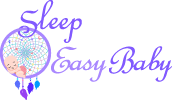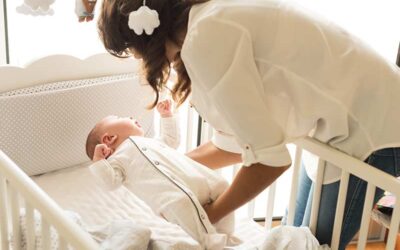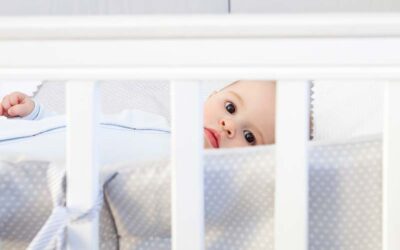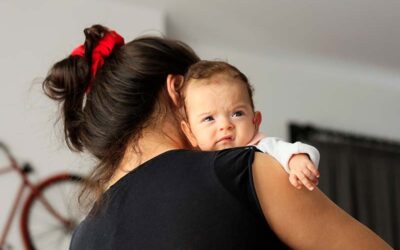Sleep Training and Infant Mental Health:
Will it harm my baby?
When a parent is deciding whether or not to sleep train their baby, the first thing they do is google “sleep training”. While there is a lot of great information out there, there are also a lot of negative opinions around sleep training. The overall consensus is that sleep training = crying it out. In a lot of people’s opinion letting your baby cry negatively affects their mental health. Whenever I hear this, I laugh because this could not be further from the truth.
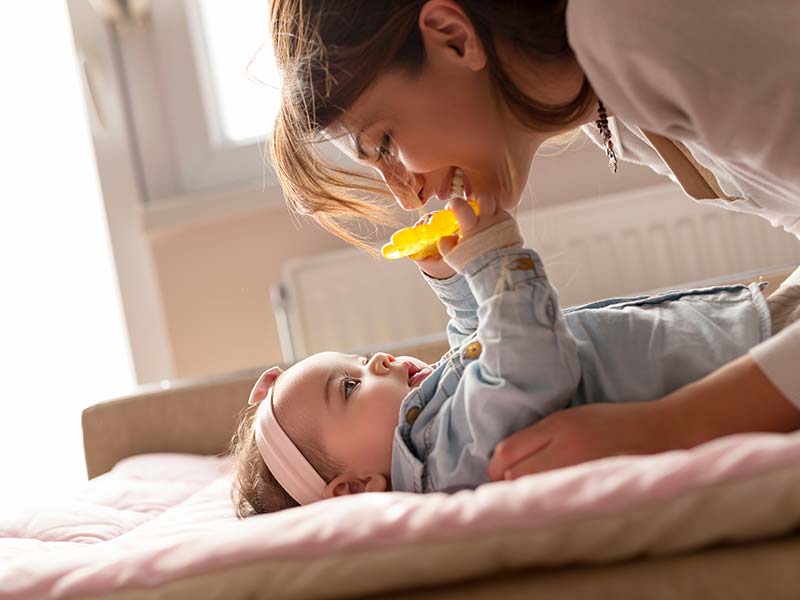
When babies first enter this world the first thing that happens is them bonding to parents and all of those important people in the baby’s life. This happens through touch, voice, eye contact, and responding to your baby’s needs as needed. Most parents form very strong bonds with their babies fairly quickly so by the time it is time to sleep train (around 4 months) these babies completely trust their parents.
Sleep training methods today are not the old school ways my parents and grandparents used back in the 50’s, 60, and 70’s. Yes, some still use them today because they are very effective for some babies, but more prefer a gentler approach. Most sleep training methods involve responding to the baby’s needs as necessary while allowing your baby to try to figure out a way to self soothe, and fall asleep independently.
Some babies will cry, but it certainly isn’t harmful or abusive to allow them to do so for a short time before offering assistance. For an event to harm a baby’s mental health, it would have to be something that has been happening for a long period of time. Let me give you an example.
A study was conducted by scientists who observed babies who were born and cared for by their mothers in a prison vs those babies who were born and cared for by nurses in an orphanage. Studies showed that babies that were cared for in prison flourished because all of the mother’s time was spent caring for their babies. The babies that were cared for by nurses in an orphanage, in most cases, failed to thrive. These babies only had contact with the nurses during feeds and diaper changes then were placed back in their cribs until their next feeds. Some of these babies didn’t learn to walk or sit up for a couple of years and a lot of them didn’t survive the first year of life due to the lack of physical and emotional contact.
Sleep training your baby and responding to their needs as needed while teaching them how to fall asleep independently is certainly not negatively affecting their mental health. Even if it does entail a bit of crying.
The first night of sleep training can be rough because the baby isn’t sure what is happening, so they usually cry for a time. Then when you do your checks, and they know you’re close by they calm and eventually go to sleep. The second and third nights are a bit easier because they know that if they really need you, you will respond to them then they settle more easily. After the first week it’s usually pretty easy to put them down and leave without a lot of tears from them because now they know that sleeping in their room is a safe place and know you’re close by.
Hopefully this eases your mind about deciding to sleep training your little one. It certainly is not harmful to them; it simply helps teach them the most important skill they will ever learn so they will continue to grow and flourish 😊
